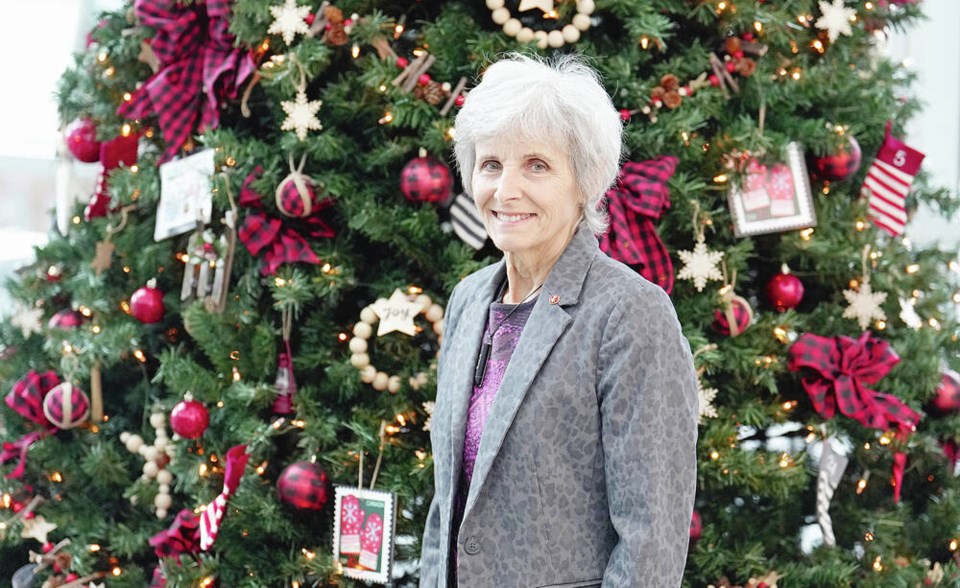A guest column by the Almoner (Grants Committee Chair) of the Sovereign Order of St. John of Jerusalem, Knights Hospitaller.
In 2024, inflation is literally stealing food off the table for seniors on pensions, working poor, unstably housed, homeless and marginalized populations.
Service agencies providing programming in other essential areas are, like their clients, living hand to mouth. Demand is up but these agencies tell us that government and direct donations are down for them.
Two years ago, in 2022, Dave Obee wrote this to kick off the Times Colonist Christmas Fund campaign: “There is great need in our community this year. Food and gas prices have soared. Rents are high, if you can even find a place to stay. Overall, inflation and the fear of recession are putting a damper on the season.”
That was the year when the Times Colonist and the Sovereign Order of St. John of Jerusalem, Knights Hospitaller, formed a partnership to attack these problems.
I will explain how and why we work together.
But first: Have things changed since 2022? Yes! They are worse.
How do we know this? We do research, right at the front door of the service agencies that provide community services.
Our 2024 community profile of need is based on survey results from 59 service providers from Mile Zero to the Cowichan Valley. In this, our fourth year, we built an analytical system aided by artificial intelligence.
First, we conducted an online survey, asking about gaps in service, changes in funding, staff and volunteer resources, programs provided, number of clients, mandate, demographics served, and pressing challenges.
As Almoner — an old name for Grants Chair in an organization nearly 1,000 years old — I attest that all applications meet the values, goals and priorities of our mission statement, which is that we serve people living in poverty, with sickness or both.
Our Receiver General (Accountant) attests each applicant is in good standing with the Canada Revenue Agency.
Next, we apply a Harvey matrix of need, fine tuned every year, using a consistent, weighted criteria-based evaluation by 12 members of this committee through an analytical ranking process.
Criteria includes diversity of recipients, organizational stability, measurable outputs, reach in terms of people and their circumstances and feasibility.
This step consumed 353 hours of volunteer time. Now the computer goes to work.
The results identified clusters of community concerns and enabled us to target our funding to the highest and most need. Our accountant checks probity, and we assure ourselves the funds will be spent on a broad, diverse, inclusive constituency.
Then we release funding, but still require a post-outcome report. This rigorous process is simplified for applicants, but every donated dollar is protected through our interaction with applicants, as far as reasonable, and with this disciplined approach.
This year, we took two additional steps. First, we built a computer model using AI to analyze feedback, which pulled the focus on our findings. Second, we held a conference with 39 front-line service providers to get first-hand feedback on our findings.
All told on core functions, excluding meetings and report writing, members spent about 550 volunteer hours on this process.
Unfortunately, the core findings were consistent — demand went up following the pandemic, contributions to service providers went down, and inflation is ringing the death knell, creating great holes in service. Some providers are even running deficits to continue meeting the needs.
Many thought, post-COVID, the situation would improve. Sadly not. However, with this rigorous process, we can target areas of highest need both to fight food inflation and to fill niches in service gaps.
Seventy-six per cent of respondents reported food security was the No. 1 problem. And this community’s top two priorities, according to these 59 respondents, were children and families at 40 per cent, and seniors at 30 per cent.
We learned several years ago the Sovereign Order ran out of the money we raised long before we ran out of need.
We realized we needed a partner that shared our values and the administrative framework we think is essential.
Why? Because we want 100 per cent of all donations we receive to go to community groups. We do not charge one cent for administration against our donations, and, as volunteers, we also provide in-kind services, carry out the survey and fund any scant administration costs internally.
After carefully checking publicly filed statements of fundraising agencies, one stood, in our opinion, head and shoulders above the rest: The Times Colonist Christmas Fund.
It takes a community effort to raise funds. Everyone struggles to keep administrative costs low. We appreciate all provide good work, and all have their hearts in the right place, but we wanted a relationship that mirrored our ethos and found a partner that works well with us.
We have a unique partnership. One side, the Times Colonist Christmas Fund, raises the funds and keeps administrative expenses exceedingly low — after all, it is the donors’ money.
Our side provides the analytical work to ensure funds are spent right on the front line, where the need is the highest.
But this could not happen without a silent third partner: You, the generous donor who reaches into your pocket and sends donations to the Christmas Fund.
The most sophisticated research, or the best-run fundraising campaign, cannot succeed without your generosity. We ask for your support this year in this time of the highest need we have seen in many, many years.
Thank you.
HOW TO DONATE TO THE CHRISTMAS FUND
• To donate, go online to tcchristmasfund.com. That page is linked to CanadaHelps, which is open 24 hours a day and provides an immediate tax receipt.
• Cheques made out to the Times Colonist Christmas Fund can be dropped off at the Times Colonist office, 201-655 Tyee Rd., in Victoria.
• You can also use your credit card by phoning 250-995-4438 from 9 a.m. to 1 p.m. Monday through Friday.



